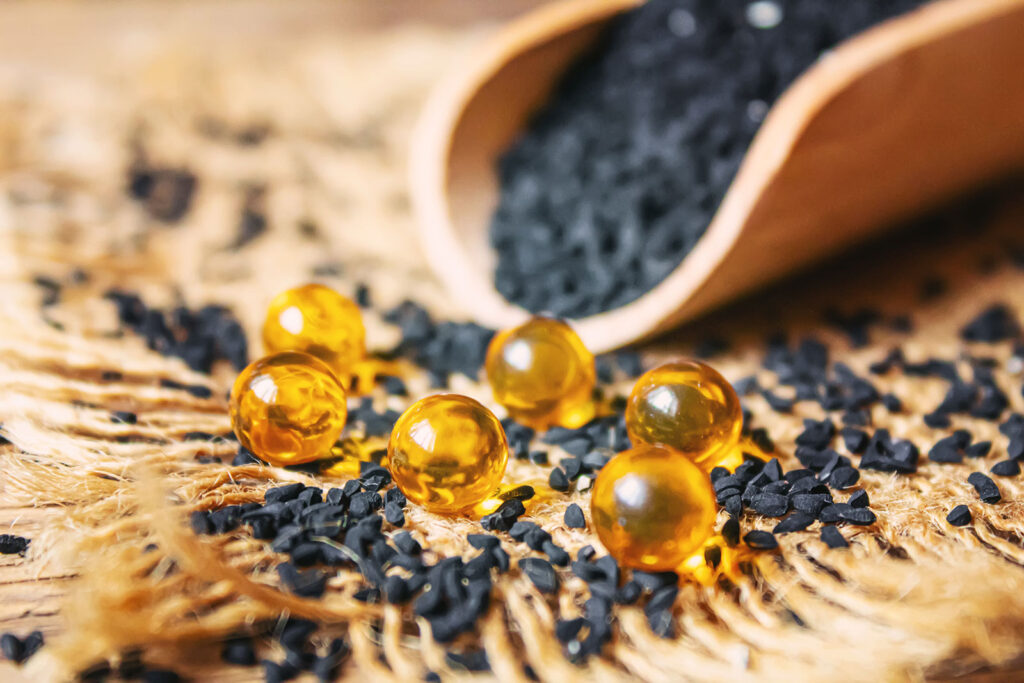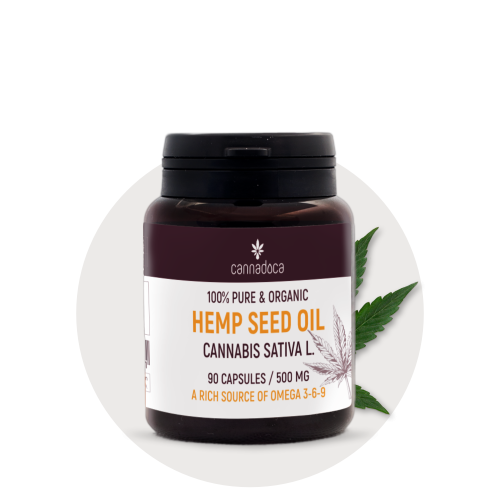
Introduction
Hemp seed oil is a popular dietary supplement, and for a good reason. Using hemp seed oil provides many benefits, including maintaining heart health, reducing inflammation, and much more. But what exactly are the benefits of hemp seed oil?
In this article, we’ll take a look at the top 10 benefits of using hemp seed oil. From maintaining skin health to reducing anxiety, read on to learn more about how hemp seed oil can improve your health. So let’s get started.
What is Hemp Seed Oil?
Hemp seed oil is an extract from the seeds of the hemp plant. It is high in nutrients and has a variety of health benefits.
The traditional method of extracting oil from any seed, including hemp seeds, is by using an oilseed pressing machine. This very old method of extracting oil from seeds and nuts produces the purest form of oil possible. It is known as “cold pressing” and is the best method for dietary purposes. In this way, all the nutritive elements are preserved without losing their nutritional value. If possible, always look for cold pressed seed oils.
Hemp seed oil is high in omega-3 and omega-6 fatty acids, which are essential for maintaining heart health and preventing chronic diseases. The oil also contains gamma-linolenic acid (GLA), which has powerful anti-inflammatory properties.
Hemp seed oil does not contain THC or CBD, which are cannabinoids also found in the hemp plant. Hemp seed oil is a great choice for people who want to improve their health.
To make sure hemp seed oil is a good choice for you, consult your doctor or other qualified healthcare provider before using it.

You may also like this:
Hemp Seed Oil Benefits
1.Nutritional benefits
Hemp seed oil is the most perfectly balanced oil in nature. It contains all 20 amino acids, including the nine crucial ones that human body cannot produce.
These essential amino acids include:
- Histidine
- Isoleucine
- Leucine
- Lysine
- Methionine
- Phenylalanine
- Threonine
- Tryptophan
- Valine
It is important to consume these essential amino acids regularly because they are necessary for the proper functioning and self-repair of the body. They play an important role in building and repairing tissues, producing hormones and enzymes, and maintaining healthy skin, hair, and nails. Isn`t it amazing?
The oil is also rich in omega-3 and omega-6 fatty acids. This makes it an excellent food source for both adults and children.
The ratio of omega-6 to omega-3 fatty acids in hemp oil is exactly 3:1. This makes it an excellent source of polyunsaturated fat for people who do not consume fish or other sources of omega-3. Hemp seed oil also contains gamma-linolenic acid (GLA), which has been shown to have anti-inflammatory effects.
One tablespoon of hemp seed oil contains the following:
Calories: 120
Total fat: 14 g
Saturated fat: 1.5 g
Polyunsaturated fat: 9 g
Monounsaturated fat: 2 g
Cholesterol: 0 mg
Sodium: 0 mg
Beta-carotene, vitamins A, C and E, and minerals such as calcium, sulfur, magnesium, potassium and phosphorus are abundant in hemp oil.
The oil has a nutty, slightly earthy taste and can be used in salads, smoothies and baking recipes.
2. Cardiovascular health
According to Medical News Today, hemp oil includes components that aid in the metabolic absorption of lipids, reduce cholesterol and lower the risk of heart attack. Among the beneficial components found in hemp oil are sterols, aliphatic alcohols, and linolenic acids.
According to research, sterols should be consumed daily to lower heart attack risk and reduce cholesterol levels. In addition to lowering cholesterol, sterols prevent platelet aggregation.
3. Anti-inflammatory benefits
As mentioned above, hemp seed oil contains gamma-linolenic acid (GLA), which effectively reduces inflammation. GLA is a type of omega-6 fatty acid that has been shown to reduce inflammation in the body. SDA is a precursor to EPA and DHA, two types of omega-3 fatty acids that are also known for their strong anti-inflammatory effects.
There is some evidence to suggest that hemp seed oil may be effective in reducing inflammation in certain diseases, such as arthritis and inflammatory bowel disease.
4. For healthy skin
Some studies have found preliminary evidence that hemp seed oil may benefit skin health:
4.1 Dry skin
Hemp oil is rich in unsaturated fats, such as linoleic acid, γ-linolenic acid, and α-linolenic acid.
These three fatty acids can improve skin structure by helping it retain moisture. They also have a beneficial effect on dry and rough skin.
4.2 Acne and acne scars
Hemp oil contains several compounds with oil-reducing, anti-inflammatory and antimicrobial properties that can help improve acne vulgaris.
4.3 Inflammatory skin conditions
Hemp oil contains a potent anti-inflammatory compound that can help reduce symptoms associated with inflammatory skin conditions, such as dry skin, itching and pain.
It may be beneficial for people with: eczema, atopic dermatitis, seborrheic dermatitis, chicken pox, eczema, psoriasis, ringworm, acne, rosacea.
Dietary intake of hemp oil may support the use of medications in people with atopic dermatitis.

4.4 Skin aging
People who consume higher amounts of linoleic acid appear to be less likely to develop age-related dryness and atrophy or thinning.
Hemp oil also contains compounds that reduce oxidative stress. Oxidative stress occurs when molecules called free radicals damage the skin, leading to the appearance of wrinkles and fine lines over time.
4.5 Skin infections
Hemp oil contains compounds that help strengthen the skin’s natural barrier, making it resistant to microbes and bacteria that penetrate the skin and can cause infection or disease.
5. Weight loss
Hemp seed oil has perfectly balanced omega 3 and omega 6 polyunsaturated fatty acids, making it ideal for nutraceutical use. People who regularly consume hemp protein report feeling less hungry and more satisfied with their food. They also noted fewer sugar cravings.
6. Anxiety
Along with targeted medication, hemp oil has shown good results in treating anxiety symptoms, says Mayo Clinic. Many pre-clinical studies suggest that hemp oil may also have anti-inflammatory properties and could potentially improve sleep quality. However, more studies are needed to determine the safety, dosage and efficacy of hemp oil.
7. Brain health
The fatty acids found in hemp oil may play an important role in aiding memory and cognitive abilities.
Researchers also suggest that the seeds may help with neurological conditions such as Parkinson’s disease and Alzheimer’s disease.
8. Rheumatoid arthritis
A major symptom of rheumatoid arthritis is joint pain. Researchers have found that the oil can reduce pre-programmed cell death and preserve cell viability, suggesting that the oil may function as an anti-rheumatoid agent.
9. Hormone balance
Scientists have found that the GLA contained in hemp seed oil can improve hormonal health and reduce symptoms associated with PMS, such as menstrual cramps. It can also benefit the hormonal health of women going through menopause and reduce their symptoms such as hot flashes, irritability and depression.
10. Healthy and beautiful hair
The essential fatty acids in hemp seed oil can help strengthen and protect your hair. It also promotes grow of new thicker hair.
NUTRITION FACTS ABOUT HEMP SEED OIL
It is generally safe to consume hemp seed oil. However, it is crucial to start with a small amount and gradually increase it if necessary. When first consuming hemp seed oil, some people may experience mild digestive upset, such as diarrhea, bloating, or gas. Regular use usually cures these negative effects.
HOW TO USE HEMP SEED OIL?
Hemp seed oil has numerous uses, including:
As a salad dressing: Combine it with vinegar or lemon juice and your favorite herbs.
As a cooking oil: Hemp seed oil can be a healthier alternative to other cooking oils. Try using it to sauté vegetables, for example.
As a skin moisturizer: Hemp seed oil is an excellent moisturizer and skin nourisher. Simply apply it to your face and body after a shower or add it to your bath for a relaxing treatment.
As a dietary supplement: Hemp seed oil can be taken in liquid form or hemp seed oil capsules. This depends on individual preference. We personally prefer to take it in capsule form because it’s quicker, easier and more hygienic.
HERE ARE SOME TIPS FOR USING HEMP SEED OIL
- Start with a small dose and increase gradually.
- Take it with food to minimize potential side effects such as upset stomach.
- To preserve its potency and freshness, store hemp seed oil in a cool, dark place.
- If you have any medical conditions or take medications, ask your doctor before using hemp seed oil as it may interact with certain medications.
DOSAGE INFORMATION
The recommended dosage of hemp seed oil depends on the condition being treated. For example, for skin conditions such as eczema, topical application of the oil several times a day is recommended. As a dietary supplement for cardiovascular problems, a dose of 2-4 capsules (500 mg per capsule) daily is usually recommended. And for daily immune support, a dose of 1-3 capsules is sufficient.
When using hemp seed oil for medicinal purposes, it is important to know the correct dosage. The amount of oil you need will depend on your weight, the severity of your symptoms, and the condition you are treating.
A starting dose of 1-2 tablespoons or 2-4 hemp seed oil capsules per day is sufficient for most people. If you are treating a more serious condition, you may need to increase the dose to 3-6 teaspoons/capsules daily.
If you are unsure how much oil to take, it is best to consult a healthcare professional before starting any treatment.

Conclusion
Hemp seed oil is a natural remedy that effectively treats a variety of conditions. After all the benefits listed above, we can say that including hemp seed in your daily diet is a very good idea.
For best results, we recommend combining hemp seed oil with our amazing CBD oils.
Sources
- Omega-3 Supplementation Lowers Inflammation and Anxiety in Medical Students: A Randomized Controlled Trial https://www.ncbi.nlm.nih.gov/pmc/articles/PMC3191260/
- Efficacy of dietary hempseed oil in patients with atopic dermatitis. https://pubmed.ncbi.nlm.nih.gov/16019622/
- Diet and Psoriasis: Part 3. Role of Nutritional Supplements. https://www.ncbi.nlm.nih.gov/pmc/articles/PMC4134971/
- Essential fatty acids for premenstrual syndrome and their effect on prolactin and total cholesterol levels: a randomized, double blind, placebo-controlled study. https://www.ncbi.nlm.nih.gov/pmc/articles/PMC3033240/
- Formulation, Characterization and Properties of Hemp Seed Oil and Its Emulsions. https://www.ncbi.nlm.nih.gov/pmc/articles/PMC6154611/
- http://acta.uni-obuda.hu/Kowalska_Wozniak_Pazdzior_79.pdf
- https://www.ncbi.nlm.nih.gov/pmc/articles/PMC3931201/
- https://www.peacehealth.org/medical-topics/id/hn-10013910
- https://phys.org/news/2014-01-analysis-hempseed-oil-health-promoting-compounds.html
- https://www.ncbi.nlm.nih.gov/pmc/articles/PMC4877453/
- https://www.peacehealth.org/medical-topics/id/hn-10013910
- https://www.ncbi.nlm.nih.gov/pmc/articles/PMC5938896/
- https://www.sciencedirect.com/science/article/abs/pii/S0378874114003511?via%3Dihub

